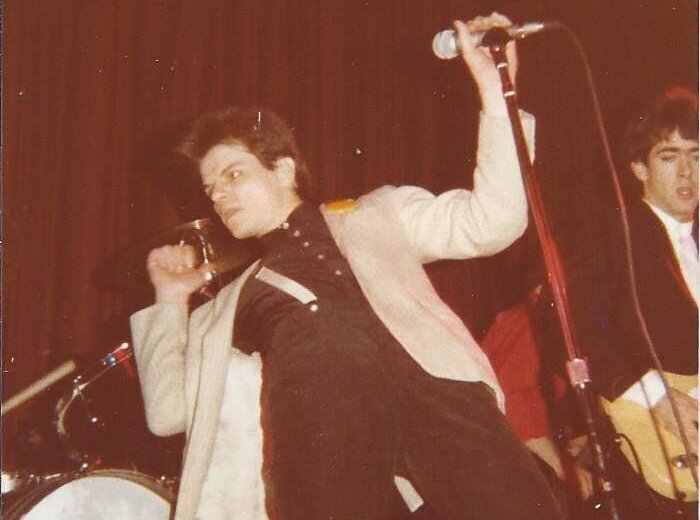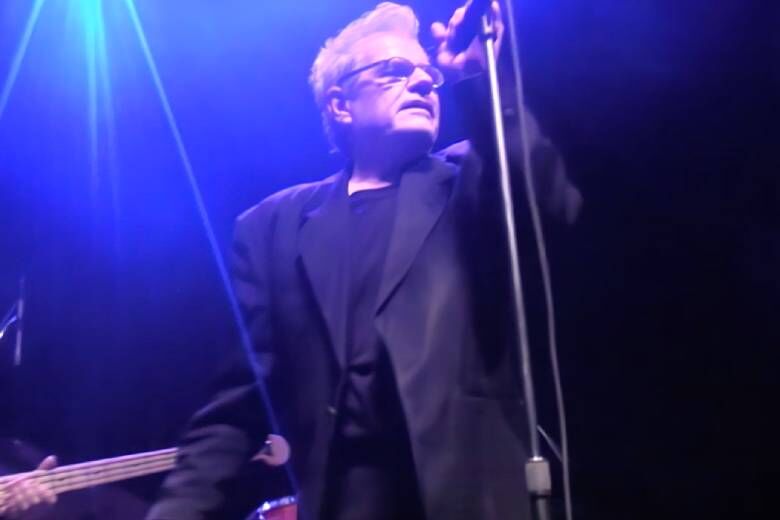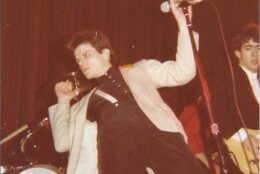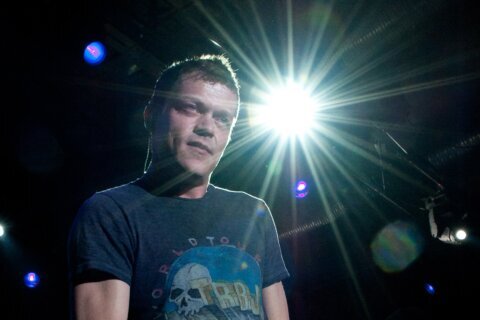





Michael Reidy, the whirling dervish singer of Razz, one of D.C.’s most popular bands, has died, at age 73, according to a family member.
Reidy’s sister, Joanna Olshonsky, told WTOP he died Tuesday, at George Washington University Hospital, from complications resulting from a stroke.
He is survived by his wife, Stephanie.
“He was always a captivating front man,” said Jeff Krulik, a friend, music historian, and co-director with Richard Taylor, of “Razz (The) Documentary,” which WTOP highlighted in 2023.
Krulik said Reidy, who was born in 1950, grew up in a military family, and settled in Camp Springs, Maryland. He graduated from Crossland High School in the class of 1968.
Reidy formed Razz — or (The) Razz — from his friendship with guitarist Bill Craig, at University of Maryland. The band started in 1971 and broke up in late 1979.
“They logged many months and years off and on early in the decade, but hit their stride in 1977, at The Keg, on Wisconsin Avenue,” in the Glover Park section of D.C., Krulik said. “A straight-ahead, two-guitar rock band assault that proved memorable and was a fan favorite.”
In its early configuration, Razz was made up of Reidy, Craig, guitarist Abaad Behram, bassist Ted Nicely and drummer Doug Tull.
“He lit a spark in me, artistically,” Behram told WTOP. “I’ll miss our onstage chemistry, where we both found freedom in the ecstatic joy of rock and roll.”
Reidy, known for his nonstop stage presence, once cut open drummer Tull’s bass drum head and climbed inside, during a live performance.
In 1978, Behram left the group, and was replaced by the late Tommy Keene.
Razz’s music predated D.C.’s still-to-be-hatched hardcore punk scene, yet they were connected to the younger Georgetown Punks. Skip Groff, owner of Yesterday & Today Records produced records by Razz, along with early efforts from teen punks Teen Idles and Minor Threat.
“They ultimately couldn’t crack the code for a coveted major label contract,” Krulik said.
“Michael was also a tremendous fine artist, with work shown at galleries and museums, such as the Katzen Center, and his graphic work was found in Unicorn Times, City Paper and fanzines such as The Infiltrator and Capitol Crisis,” said Krulik.
The University of Maryland has compiled archival material of Razz.
Reidy’s talent and charisma spanned both fine arts and rock and roll.
“His style was unmistakable and instantly recognizable,” said Krulik. “You know when you were looking at a Reidy.”
Get breaking news and daily headlines delivered to your email inbox by signing up here.
© 2024 WTOP. All Rights Reserved. This website is not intended for users located within the European Economic Area.








